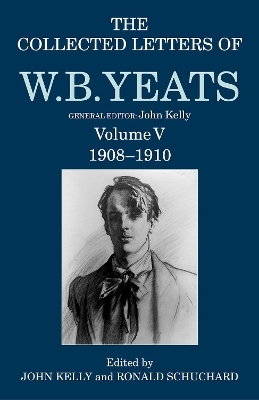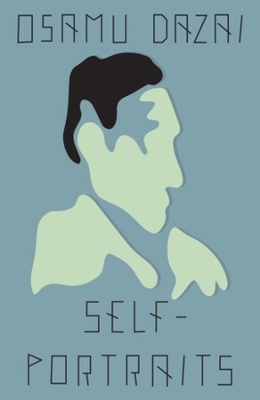
The Collected Letters of W. B. Yeats
Oxford University Press (Verlag)
978-0-19-812688-1 (ISBN)
Shortly after the death of Algernon Swinburne in April 1909 Yeats announced to his sister that he was now 'King of the Cats'. Yet, as the letters in this volume demonstrate, although widely recognized as the leading poet in English, he was far less sure of himself than this triumphant boast suggests. Indeed, this volume tracks Yeats's unrelenting but often agonised attempts to redefine his positon as a poet in a time of aesthetic and personal transition and uncertainty, struggling, as he put it, to fashion 'an art of my own day' and amid 'doubtings, shrinkings, hatreds, reconciliations'. His letters about the eight-volume Collected Works, completed in these years, show him attempting to get his 'general personality' into his readers' minds, but always as 'a preliminary to new work'. What constituted 'personality', general or otherwise, was a contested area and in letter after letter he hammers out its relationship to 'character' in a debate which was to convert him from a late Romantic into an early Modernist. If many letters are concerned with the revision and reappraisal of old work, more reveal the insistent, and often frustrating, attempts to find new expression, particularly in the writing of The Player Queen, a process which, as he told a correspondent, convinced him that no fixed identity was possible.
Developments in his personal life contributed to the sense of uncertainty and transition. In the spring of 1908 he began an affair with a new mistress, Mabel Dickinson, but ironically we find this rekindling and intensifying his feelings for his old love Maud Gonne, and for the first time they came close to a physical relationship, although she insisted that their 'spiritual marriage' would be purer if unconsummated. But the return to mystical sublimation was, after nearly twenty years of courtship, no longer satisfying to him; the situation, as he confessed in a letter, had set his 'nerves tight as a violin string but not one that makes sweet music'.
More discordant music came from the Abbey Theatre. Early in 1908 the Fay brothers, founder members and mainstays of the Company resigned, and for a time it seemed that the whole project might come to an end. Over the next three years, as his correspondence eloquently reports, Yeats worked tirelessly to make sure this did not happen, encouraging new actors and playwrights, overseeing the evolution of a repertory structure, taking rehearsals often for weeks on end, battling with Fays for their misuse of the Irish National Theatre's name in America, mediating in the quarrels of the players, deflecting where he could the cantankerousness of the Theatre's patron, Annie Horniman, and, on her withdrawal of her subsidies, helping Lady Gregory in fund-raising, and in a final successful bid to renew the Abbey's patent. His exertions in the Theatre were much increased by the terminal illness of his friend and colleague John Synge (which, he confesses, 'for the first time in my life made death a reality to me'). The serious illness of Lady Gregory brought home to him his dependence on her and the ambience of her house, Coole Park; the massive mental breakdown of his companion Arthur Symons broke a remaining tie with the 1890s and the passing of his uncle and fellow occultist, George Pollexfen, severed his major link with Sligo. But, if these old relationships altered or disappeared, new ones were forged. Ezra Pound at last succeeded in meeting him and began encouraging him in his quest for 'an art of my own day', while Yeats himself fostered the talents of younger writers, notably the playwrights Lennox Robinson, T. C. Murray, St. John Ervine, and Lord Dunsany.
By the end of the period, Yeats, who we see brought to edge of a nervous breakdown in 1909, and defying the Establishment in producing Shaw's Blanco Posnet, became a man of affairs: pressed to apply for Professorships at Trinity College and the new National University, elected a founding member of the British Academy of Letters, and the recipient of a Civil List pension. The recasting of The Golden Helmet, first produced in the early months of his volume, as The Green Helmet of two years later, indicates how the discussions and soul-searching disclosed by his letters had begun to bear fruit. Less now a play satirizing Irish divisions and jealousies than a celebration of Nietzschean tragic joy and Castiglionean sprezzatura, it indicates the qualities Yeats had learned to prize over the intervening three years.
John Kelly is Emeritus Research Fellow in Engilsh at Oxford University, and the general editor of The Collected Letters of W. B. Yeats. Ronald Schuchard, Goodrich C. White Professor of English and Irish Studies, Emeritus, Emory University, is the award-winning author of Eliot's Dark Angel (OUP 1999) and The Last Minstrels: Yeats and the Revival of the Bardic Arts (OUP 2008). The editor of T. S. Eliot's Clark and Turnbull lectures, The Varieties of Metaphysical Poetry (Faber 1993), he is co-editor with John Kelly of The Collected Letters of W. B. Yeats, Volume 3 (1994) and Volume 4 (2005), which received the Modern Language Association's Morton N. Cohen Award for a Distinguished Edition of Letters. He is general editor of The Complete Prose of T. S. Eliot: The Critical Edition in eight volumes (Faber and Johns Hopkins), Volume 2 (2014) of which won the Modernist Studies Association's award for a distinguished edition. A former Guggenheim fellow, he is also a fellow of the American Academy of Arts and Sciences.
Acknowledgements
List of Illustrations
Chronology: W. B. Yeats, 1865-1939
Note on Editorial Principles
List of Manuscript Sources
List of Abbreviations and Short Forms
Introduction to Volume V
The Letters: 1908-1910
Biographical and Historical Appendix
Index of Recipients
General Index
| Erscheinungsdatum | 04.10.2018 |
|---|---|
| Reihe/Serie | Yeats Collected Letters Series |
| Zusatzinfo | 16 page black and white plate section |
| Verlagsort | Oxford |
| Sprache | englisch |
| Maße | 163 x 243 mm |
| Gewicht | 1802 g |
| Themenwelt | Literatur ► Briefe / Tagebücher |
| Geisteswissenschaften ► Sprach- / Literaturwissenschaft ► Anglistik / Amerikanistik | |
| Geisteswissenschaften ► Sprach- / Literaturwissenschaft ► Literaturwissenschaft | |
| ISBN-10 | 0-19-812688-3 / 0198126883 |
| ISBN-13 | 978-0-19-812688-1 / 9780198126881 |
| Zustand | Neuware |
| Haben Sie eine Frage zum Produkt? |
aus dem Bereich


